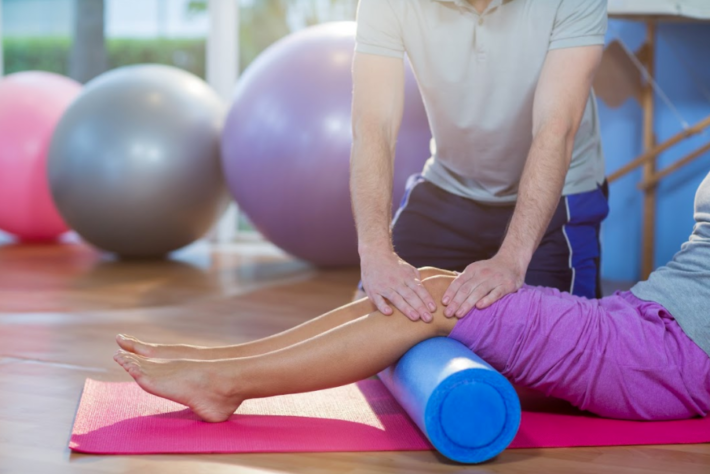
Pilates and Clinical Pilates may sound like two sides of the same coin, but in reality they offer several differences in practice, and application. These differences mean that some people will be more suited to standard Pilates, while others would benefit more from taking part in Clinical Pilates.
What is the Difference?
Traditional Pilates is a technique developed by a professional dancer named Joseph Pilates in the 1920’s, and its main function is to aid in rehabilitation. The exercises involved in a typical Pilates session or class will focus on improving general movement, increasing strength, and giving the patient more control in their body. Pilates, including reformer-based Pilates, which makes use of equipment and machines, not just a mat, can really help a patient to improve their core stability and general strength.
Clinical Pilates differs from Pilates because it takes into account an individual’s specific injuries and physical needs, instead of having every person work in the same way. The staff in a Clinical Pilates establishment have expert knowledge and training in physiotherapy and exercise physiology, meaning that they can analyse which specific Pilates exercises suit each patient best, and they modify their routine to those needs.
This additional clinical knowledge, which is absent from standard Pilates practise, means that patients can undergo a clinical assessment and, from there, be told exactly where their problem areas are, and shown exactly what exercises they need to focus on in order to improve those issues. Clinical Pilates offers a personalisation that isn’t available with standard Pilates.
Which is Best for Me?
Whether you choose to go for Pilates or Clinical Pilates is your decision, and it is often dependant on how you feel in your body. If you have been suffering for several years from a constant lower-back discomfort that you cannot seem to cure, it is probable that Clinical Pilates is the best route for you to take. The clinical assessment available to you will be able to help identify the root cause of your problem, and your Clinical Pilates can be mixed with physiotherapy to ensure that you are receiving the best possible training for you as an individual.
If you are not suffering from any specific ailment or issue, but you have expressed an interest in becoming stronger and feeling more in control of your body, Pilates is great way to improve both your overall strength and your core.
Clinical Pilates and Rehabilitation
Though Pilates has been a popular form of exercise for many years, helping people to enjoy improved strength and agility in their body, it has more recently become popular as a form of injury rehabilitation.
As we go through our daily lives, we almost never pick up on the things that our bodies are doing wrong because they don’t cause us immediate pain. But under the surface, the way we stand, walk, sit down, sleep, and exercise can all be contributing to muscle imbalances in our bodies.
For instance, putting too much pressure on your lower back muscles when you walk can weaken your pelvic muscles, leaving your body out of tune. Pilates works to resolve these issues, helping the core of your body to become stronger and helping the alignment of your spine and pelvis.
Clinical Pilates as a form of rehabilitation has spread across the globe, and its benefits are clear. The ease with which the exercises can be modified for each individual’s specific needs means that every patient who uses Pilates as rehabilitation is getting the best possible treatment. Patients are able to go at their own pace, and they are not hurried along by any set rules. They can be allowed to heal and strengthen at a rate their body allows.
Clinical Pilates at Morley Physiotherapy
Interested in group or personal Clinical Pilates? We offer both at Morley Physiotherapy. Our therapists have been trained by Craig Phillips – a physiotherapist and ex-classical dancer from Melbourne with over 20 years of Pilates experience. His training program is formally accredited by the Australian Physiotherapy Association.
Contact us now to find out more about how we can help keep you moving, feeling, and living well!
